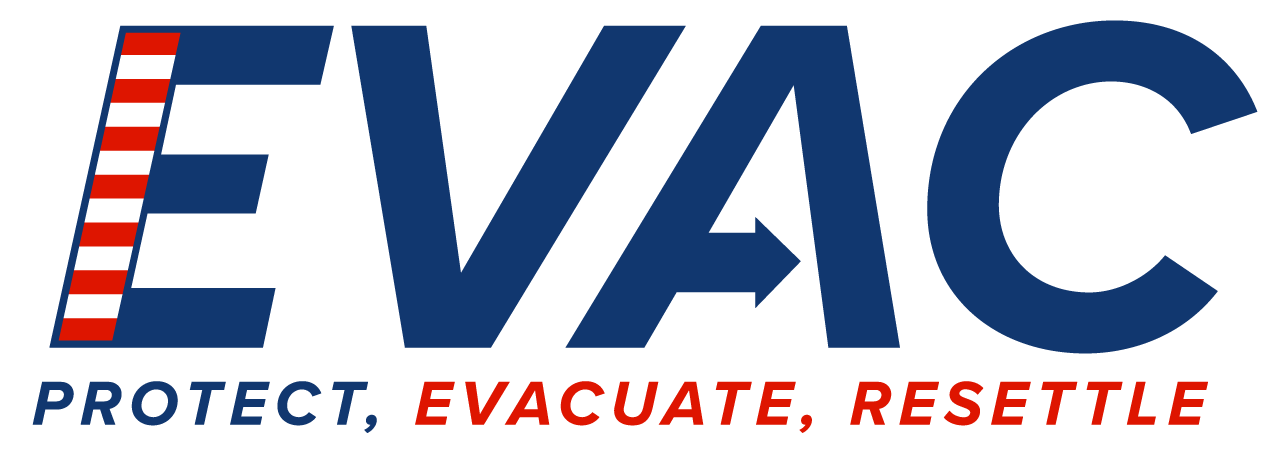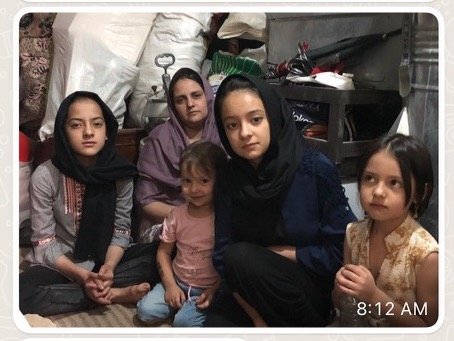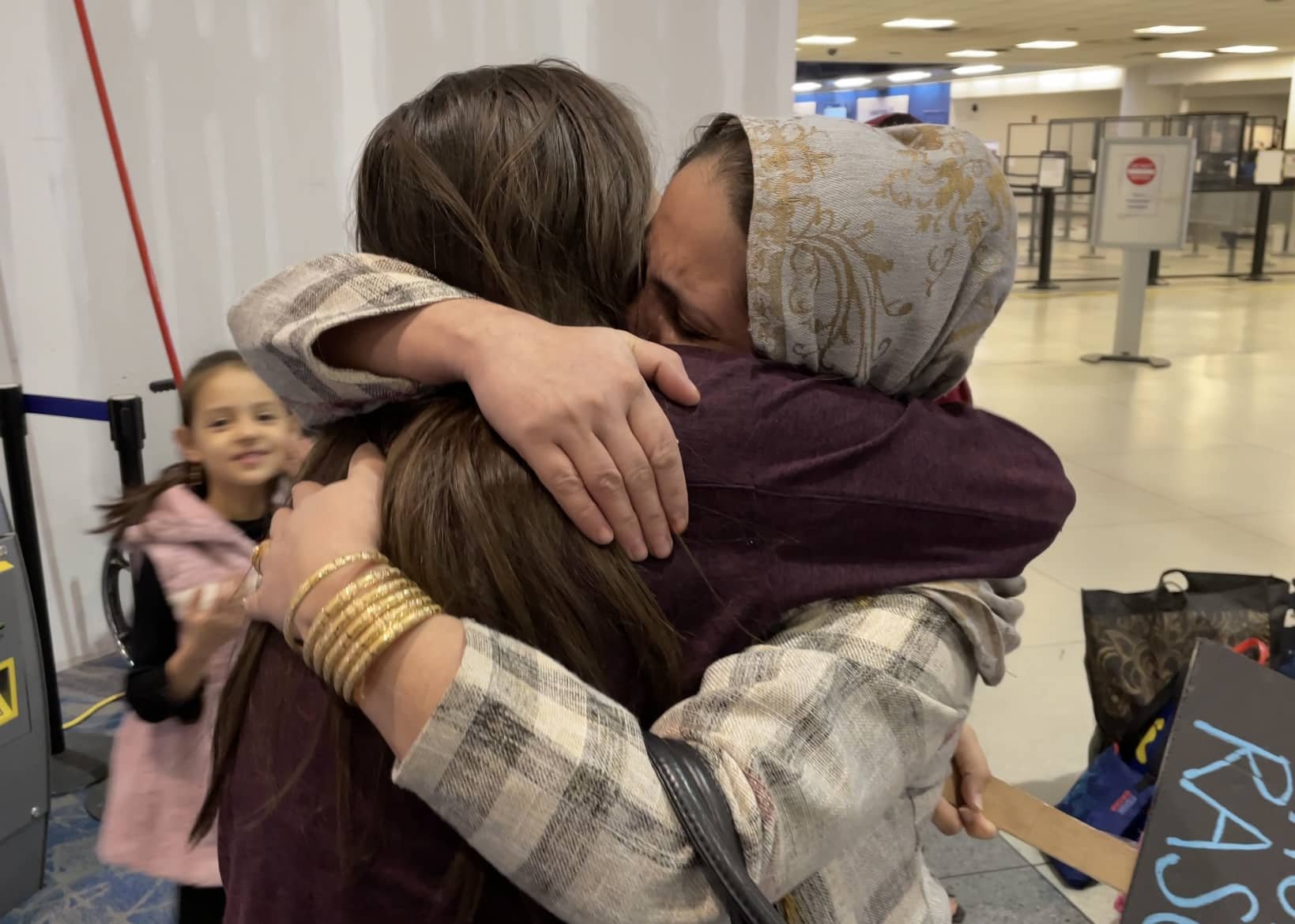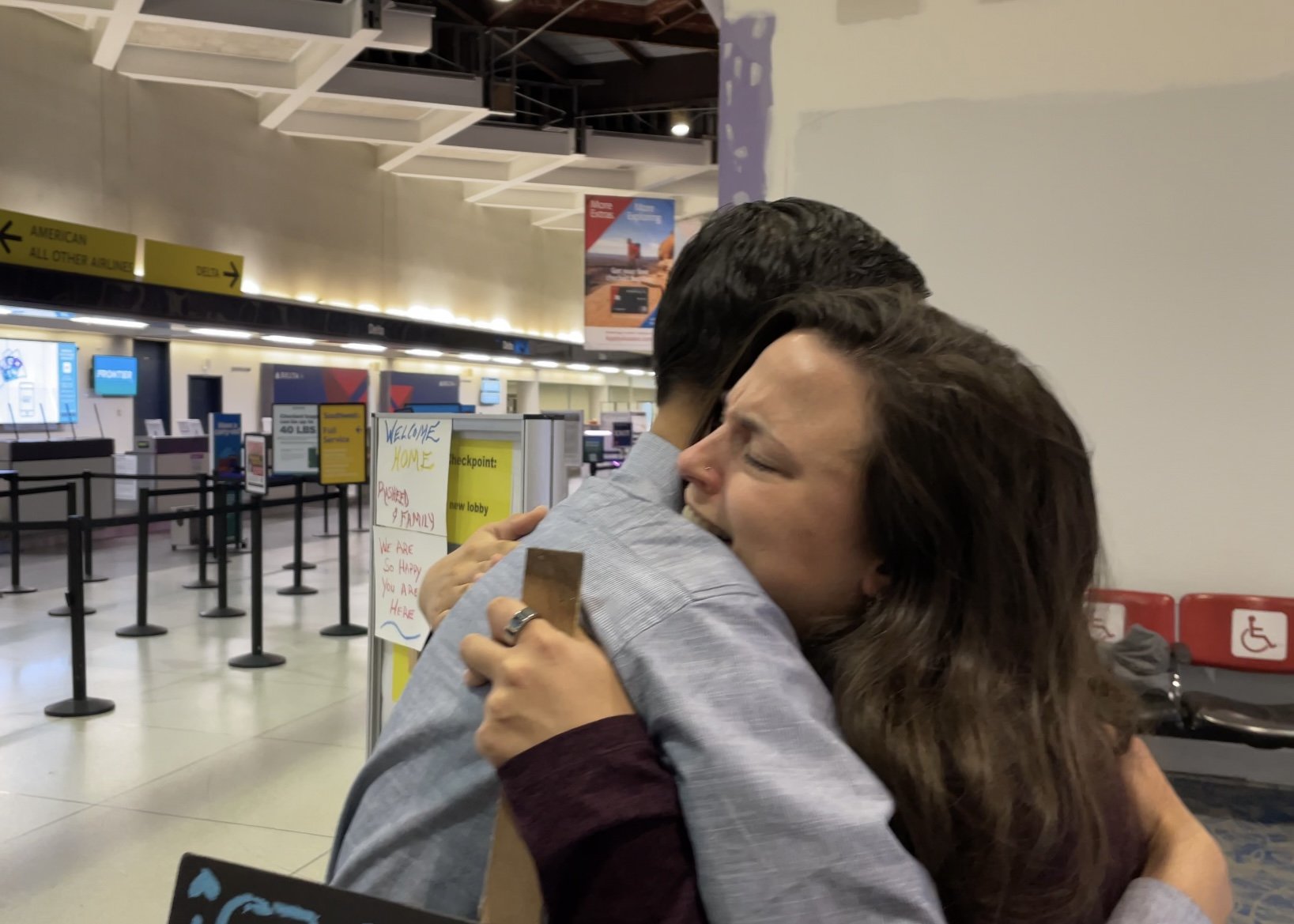Rasheed’s Story
“Can anybody help my family?”
Rasheed posted that to Twitter in August, 2021 as the US was withdrawing from Afghanistan and as the Taliban were storming Kabul. You don’t ask for help on Twitter if you have others who can help: family, an employer, a government. This was a final, desperate plea into the abyss of the internet. A true shot in the dark. But when you are likely to be murdered within the week, when your teenage daughters are likely to be married off to the Taliban...
Rasheed worked for many years for the US Government as an environmental compliance specialist, helping the US build bases and irrigation systems throughout Afghanistan. He worked for the US because he believed in a free and democratic Afghanistan for his four young daughters, and because the US promised they’d protect his family in return. When the US left Afghanistan, Rasheed, his wife, and four young daughters were left behind. As a prominent engineer for the US, they had nowhere to hide: the Taliban knew about him and would hunt him down in their revenge mission against all Afghans who collaborated with the US.
EVAC exists because of Rasheed. But at that time, we were not a non-profit; we were a handful of US citizens who responded to his Twitter post. We did not know if we could help, but we could try. We began asking: what’s the next right move for this family? There were still a few weeks remaining of US evacuation flights out of Kabul. We needed to get them on one.
We called in every uncomfortable favor from every person we knew (you know who you are, thank you). Within 48 sleepless hours, we were on the phone with the US military at the Kabul airport. After verifying Rasheed’s identity and former employment, his family was manifested: they had 6 seats reserved on one of the last flights out of Kabul. Now we had to get them inside the airport.
You probably saw the pictures on the news: hundreds of thousands of people swarming the Kabul airport, people falling from airplanes. Rasheed and his wife were with four young girls. They couldn’t get through the crowds. So, we got them access to a secret CIA-controlled door at the back of the airport. But on their way to the backside of the airport, ISIS-K exploded suicide bombs in the crowd. Hundreds died, including US service members. The airport locked down, including the CIA-door. Rasheed’s family watched the flight take off without them... 6 empty seats.
“What do we do now?” Rasheed asked. What’s the next right move? Safe shelter. They couldn’t go back home. The Taliban could come looking for them any moment. We started looking for safe housing options for at-risk Afghans. This is when our sprint to save Rasheed turned into a marathon that now involves 350 at-risk Afghans under EVAC’s care.
Evacuation flights out of Kabul ended for the time being. The US was fully out of Afghanistan. With Kabul overrun by Taliban, we felt it safest to move Rasheed’s family to a smaller city in Northern Afghanistan. There, they’d be further from the Taliban center of operations and closer to a small airport from which a non-profit organization was scheduling evacuation flights.
For 6 months, Rasheed’s family lived in a safe house in the North. No going outside, no social media, no doctor appointments, no opening the door, no sitting near the windows. We delivered food and medical supplies covertly. They hid their identifying documentation in sacks of rice. When we’d get intelligence of Taliban house-to-house searches, they’d hide in the closet, sometimes overnight.
The family hiding on news of nearby Taliban house-to-house searches.
Finally, a breakthrough... we got them manifested on a non-profit sponsored evacuation flight out of the North. They would leave the safehouse for the first time in months. On the way to the airport, they’d have to pass through at least two Taliban checkpoints. They’d hide their paperwork in their daughter’s burkas. We made them write our phone numbers on the inside tags of their clothing and delete everything off their phones; if the Taliban saw US numbers, they’d know. They’d lie to the Taliban. And we’d pray for safe passage. We sent them out. And waited.
Failure. The non-profit coordinating the flight spelled their last name wrong. Fury. We’d done everything right! But because of this avoidable administrative error, we sent a family out into danger only to be turned away. They had to return through the Taliban checkpoints again. It exposed the safe house. Heartbreak. For the second time, they watched a flight take off with six empty seats.
What’s the next right move?
We moved Rasheed’s family by land into Pakistan, and then sent many more at-risk families along this pathway. Rasheed quickly became our most trusted team member in Pakistan. He helped us manage donated money. He coordinated the rental of additional safe houses. He organized food and medical care for other Afghan families we helped. He became our leader for all families we moved to Pakistan. And he served them selflessly.
Months passed. Meanwhile, our team worked furiously to get Rasheed’s family manifested on an evacuation flight out of Islamabad, Pakistan. Our US Congressional partners applied pressure on all the agencies involved in evacuating Afghan Allies. During this time, the depression set in. Rasheed’s teenage girls, who had not been to school in nearly a year, stayed in bed all day. We watched Rasheed’s face become sallow and thin. When we’d try to encourage them to keep hope, the teenage girls would say “stop telling us to have hope, there is none, we have no future.” We held the hope for them.
Then it happened. We were notified that the family was manifested for an evacuation that would leave Islamabad, Pakistan on October, 18th 2022. We sent them to the airport. And it worked. It really, really worked!
428 days after Rasheed’s shot in the dark— “Can anybody help my family?”—they boarded a flight to the US. We met them at the airport in Charlotte and laughed and cried and embraced. They were safe. They are safe.
Originally, Rasheed intended to resettle in Colorado to be near the EVAC team. However, Rasheed’s younger brother lived in Charlotte, North Carolina. And, in a tragic event, the brother’s wife (Rasheed’s sister-in-law) was run over by a drunk driver and killed, leaving the brother with three young children. Rasheed and his wife—always selfless helpers—decided to settle in Charlotte to help take care of the brother and children.
It's been 14 months of fear, struggle, hope, loss, and ultimately victory. Rasheed’s four girls can go to school and get educated. They can live without fear. Though it will not be easy, they will rebuild their lives as American citizens.
When telling Rasheed’s story lately, we’ve often heard “what a miracle.” We’re sorry to say, there was little miraculous about it. It was the strength and endurance of a brave family. It was the tenacity and covenant-like commitment of EVAC’s volunteers to see this mission through. We didn’t set out to start a non-profit that is protecting, evacuating, and resettling 350 at-risk Afghans; we were simply doing what we could to help Rasheed’s family. What we’ve learned since then is that this work is not easy. Feeding families in hiding, providing medical care, renting safe houses, advancing immigration cases, hiding from a violent, well-armed militia. It’s been an exhausting and arduous mission for our team. But sitting with Rasheed’s family around a dinner table in Charlotte, hearing the teenage girls laugh, watching the two little girls color their names in English letters... all in safety, all in peace. It’s worth it. They were worth all of it.
Starting a new life in a new land is never easy. Especially after enduring 14-months of trauma. Especially when you arrive with nothing. Please consider helping Rasheed’s family get started. The needs are significant. A resettlement agency is providing 3 months of rent in a home with no furniture or washer/dryer. They will need a car so Rasheed can find work (ideally a car that seats 6). Rasheed needs a job in Charlotte, ideally as an environmental engineer (such as for a construction company or manufacturing plant). If you have connections for a job, please email Alex@EVACoperation.org or call/text Alex at 973-229-6889. The girls have started school and need clothes and school supplies. Every bit helps. If you would like to send or order physical items, please contact Alex for the shipping address. Thank you for reading the story of this brave, beautiful family. Thank you for responding to this family’s original plea from 14 months ago: “Can anybody help?”






